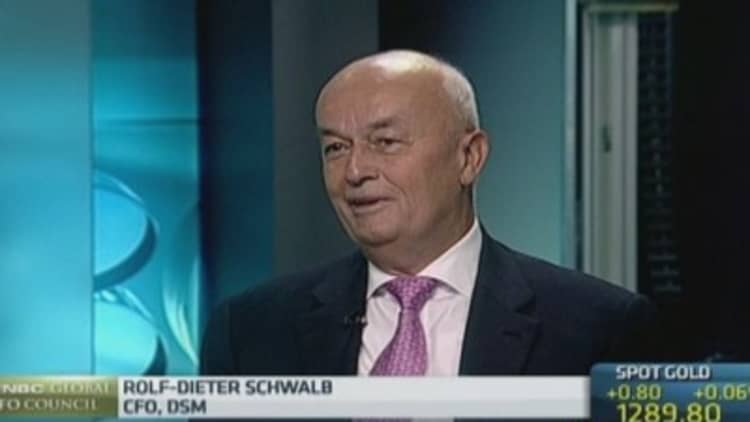The euro slid further in early trade in Europe on Friday after strong words from European Central Bank chief Mario Draghi that halted its march this year to a 2-1/2 year high.
Draghi said after the bank's policy meeting on Thursday that the euro's strength was "a serious concern" and that the ECB bank was "comfortable" with taking more action to support growth and raise inflation at its June meeting.
This sent the euro down sharply. But many strategists and traders in London cast doubt on whether it was enough to put a definitive end to the trend for a stronger euro that has dominated major currency markets so far this year.
"Draghi's comments have possibly changed the situation for a while but I'm not sure it has changed the broader picture," said Neil Mellor, a strategist with Bank of New York Mellon in London.
He argued that the shopping list of factors that have driven the single currency's gains were all still in place: a high current account surplus, banks repatriating of cash ahead of this year's asset review, a return of cash to southern euro zone government bond markets and the weakening of China's yuan and resulting sales of dollars for euros by Beijing.
Read MoreWill the ECB's euro bashing work?
"It might be that the market will take some more profit (on the euro's rise) here but I would not be very surprised if come the end of next week the euro was taking another pop at the $1.40 level," Mellor said.
The euro fell another 0.1 percent compared with the end of U.S. trading on Thursday. That took it back to where it was at the end of last week and in general it remains near the top of the ranges that have so concerned ECB policymakers in the past two months.
It hit a peak of $1.3995 on Thursday before Draghi's comments, its highest since October 2011.

"The debate shifts to what measures the ECB will take and that will be enough to cap the topside of the euro," analysts from Belgian bank KBC said in a morning note.
"So, we now look (at) whether Draghi's guidance has enough credibility to install a sell-on-upticks pattern for the euro."
Dollar steady elsewhere
If the euro's strength has been this year's big surprise for markets, then it is largely in the context of the dollar's failure to make good on the raft of calls in January for it to strengthen.
Against the the dollar was little changed at 101.70 yen , still not far from a three-week low of 101.43 yen set on Wednesday. Likewise, sterling held steady at $1.6926 within striking distance of $1.70 - a level it has not broken since August 2009.
Read MoreThe declining dollar: Why everyone got it wrong
For the week, the greenback is down 0.5 percent against the yen, weighed down by persistently dovish comments from the Federal Reserve and low U.S. Treasury yields.
"If you ask whether is going to head higher or lower, I think downside risks are increasing," said Satoshi Okagawa, senior global markets analyst for Sumitomo Mitsui Banking Corporation in Singapore, adding that the greenback could head gradually lower against the yen.
Simmering tensions in the Ukraine have also supported the safe-haven yen currency and the market kept an eye on a May 11 separatist referendum.
Pro-Russian separatists voted unanimously on Thursday in favour of holding a referendum on independence, defying calls by Russian President Vladimir Putin to postpone the vote to open the way for talks with the Kiev authorities.
The eased 0.1 percent to $0.9364, edging away from a three-week high of $0.9395 hit on Thursday, when it gained a lift from upbeat Australian and Chinese economic data.

